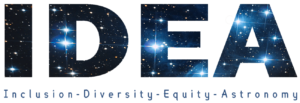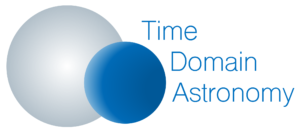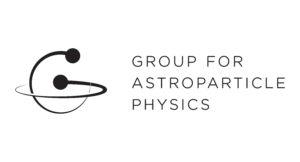Chapters and Groups of the ASA
The Society houses special interest groups such as Chapters, Working Groups and groups formed jointly with cognate societies.
Follow these instructions to become a member of any of the ASA Chapters:
- ‘Sign in’ via the link at the top right of any ASA web page
- Login to your ASA Membership portal with your email address and password
- Click ‘Edit Profile’
- Scroll down to ‘Group Membership’
- Select the Chapters you wish to be a member of
- Scroll down to the bottom of the page and click ‘Save’
- Log out at the top right banner of the web page
Australian National Institute for Theoretical Astrophysics (ANITA)
ANITA is a virtual national institute which aims to ensure that the needs of Australian theoretical astrophysics are represented at a national and international level.
The goals of ANITA are to raise the profile of Australian theoretical astrophysics, encourage national collaboration, foster international links, facilitate theoretical astrophysics meetings, and provide input into national policy.
All enquiries can be made by contacting ANITA at asa.anita.chapter@gmail.com.
Early Career Researcher (ECR)
The Early Career Researcher chapter is a chapter of the Astronomical Society of Australia (ASA) that acts to support the needs and development of Early Career Researchers in the Australian astronomy community. It does this through the following priorities:
- Inform the members about opportunities for professional training and support
- Provide training for the members in areas of professional development
- Connect the members with each other, and also with senior researcher mentors, providing a support network
- Acting as an advocacy and representation body for its members
You must already be a member of the ASA to join. Senior astronomers and students are also very welcome. You can get in touch with the Steering Committee by emailing us at asa.ecr.chapter@gmail.com.
Education and Public Outreach (EPOC)
Many members of the Astronomical Society of Australia (ASA) are involved in astronomy Education and Public Outreach at all levels of society, ranging from school visits to university education, media contacts and activities for the general public. The Education and Public Outreach Chapter (EPOC) is a Chapter of the ASA providing a forum to discuss and promote these activities, whilst also initiating some of its own.
The Mission of EPOC is:
To advance the level of public awareness of the excitement of astronomy and of the international importance of Australian astronomy, while promoting the teaching of astronomy to students and the public.
The ASA is a signatory to the Washington Charter for Communicating Astronomy to the Public, which acknowledges the responsibility of astronomers to effectively communicate astronomy to the public for the benefit of all.

The IDEA Chapter was established as the Women in Astronomy Chapter by the ASA Council in November 2009, to raise the profile of women in Australian astronomy. In 2016, the Chapter aims were broadened to include wider diversity issues and was renamed to reflect this change.
Inclusion, Diversity and Equity in Astronomy (IDEA)
The Group for Astroparticle Physics (GAP) is a joint Group of the ASA and the Australian Institute of Physics.
Closing the ‘gap’ between astronomy and particle physics, a key aim of the GAP is to bring together these two communities to advance the field of astroparticle physics. Further information about the GAP can be found in the GAP Charter.
The GAP website is hosted by the Australian Institute of Physics.
GAP 2024 Steering Committee
- Co-Chair (AIP): Martin White (until 2026)
- Co-Chair (ASA): Mark Krumholz (until 2025)
- Hayley Bignall (treasurer – until 2025)
- Krzysztof Bolejko (ordinary member – until 2025)
- Theresa Fruth (ordinary member – until 2026)
- Nicole Bell (AIP representative)
- Marc Duldig (ASA representative)
- Jemma Pilossof (student member – until 2025)
- Celine Boehm (secretary & past-chair AIP – until 2026)
- Alex Heger (past-chair ASA – until 2025)
Joining GAP
https://list.adelaide.edu.au/mailman/listinfo/ozastroparticle.physics
Please note that only ASA and/or AIP members may nominate for Steering Committee positions, and vote in their election.
Sending Emails to the GAP Membership
ozastroparticle.physics@list.adelaide.edu.au.
GAP formation committee
- Hayley Bignall
- Marc Duldig
- Clancy James
- Gavin Rowell (chair)
- Yvonne Wong

Time domain astronomy (TDA) is a main science driver for major world-class facilities and is an area of significant growth in Australia. TDA is unique from other areas of astronomical research in that it requires coordinated observations, often by separate groups, for search and follow-up using facilities located across Australia and over the world, as time-sensitive events evolve, and before transient events fade from view forever. Furthermore, TDA requires collaborative work with researchers at all wavelength sub-disciplines and gravitational waves in observation, theory, and instrumentation. Finally, TDA places new challenges for instrumentation and facility capabilities, data acquisition, rapid transport, processing and analysis, event brokering, machine learning and event identification, and data storage. As a result, TDA overlaps with a large cross-section of the ASA community. We encourage any ASA member who works in the realm of time domain astronomy to join the TDA Chapter!
AIMS:
- Promote collaborations within Australia by connecting members who share scientific interests and geographical proximity
- Provide ASA members with valuable opportunities to network at a local level, enabling their personal and professional growth
- Enhance collaborations with international collaborators and partners on coordinated detection, observations, and follow-up investigations, leveraging Australia’s unique geographical location and facilities
- Build a connected, coordinated, multi-wavelength, multi-messenger community in Australia and establish/grow world-wide connections, especially on time-window-critical, multi-wavelength and/or multi-messenger discoveries
- Work with ASA, AAL and the AIP on the investment needs and future goals and strategies of the TDA community
- Promote a strong ECR and student education and training program, as major TDA facilities are coming online and will extend beyond the next decades
STEERING COMMITTEE:
- Chair – Ben Montet, UNSW Sydney
- Deputy-chair – Richard de Grijs, Macquarie
- Immediate past chair – Ashley Ruiter, UNSW Canberra
- Natasha Hurley-Walker, Curtin/ICRAR
- Eric Thrane, Monash
- Adelle Goodwin, Curtin/ICRAR
- Dougal Dobie, Swinburne
- Nandita Khetan, UQ (Early Career member)
- Bailey Martin, ANU (HDR member)
TDA Charter
A copy of the TDA charter can be found here.
The steering committee, once elected by TDA membership, will hold meetings 4-6 times per year. The steering committee should represent the TDA community of the ASA and should strive to be diverse in multiple ways: TDA science, demographics, gender identity, career stage, etc.
FOUNDING COMMITTEE:
The TDA Founding Committee members are:
- Manisha Caleb (U Sydney)
- Jeff Cooke (Swinburne)
- Marc Duldig (U Tas; ASA Secretary)
- Ashley Ruiter (UNSW Canberra; ASA Vice President)
All enquiries can be directed to Ben Montet – b.montet@unsw.edu.au or the ASA Secretary – asa.secretary@sydney.edu.au.

The ASA Sustainability Working Group (SWG) was commissioned by the ASA council in 2019 to lead initiatives to promote sustainable working practices within the Australian Astronomical Community.
Resources
- IAU Statement on Climate Change
- Astronomers – Your planet needs you! Presentation to the 2021 ASA Annual Scientific Meeting by Dr Karl & Prof. Peter Tuthill:
Astronomy offers a fresh angle to engage the public with the science of climate change. Astronomers bring an understanding of the underlying cause-and-effect physics governing planetary behaviour from the widest perspective of all: the origins, evolution and fate of the solar system itself. The energy budget of Earth, the fate of our neighbouring worlds in the solar system, and the emerging results from exoplanetary discovery can be woven into a compelling narrative. This talk asks you to join us in bringing evidence-based reason, drawn from your own field, to the forefront of public discourse.
See the ASA’s Sustainability Statement.
Please feel free to use these resources for your very own talk:
- Main Presentation: keynote pdf
- Demo Videos: Caponograph IR Camera
- More Resources
Contact the SWG – for more information or to join the SWG, contact Themiya Nanayakkara at wnanayakkara@swin.edu.au.
The ASA Communications Working Group (CWG) was established in 2022 as part of an initiative by the ASA Council to broaden and augment the means by which the ASA membership communicates, in particular with respect to leveraging technology where relevant. The initial remit of the CWG has been to set up and define guidelines for the ASA Slack space, which it currently takes responsibility for administering. We welcome joining members from across the ASA cohort, especially those with an interest in enhancing communications within the ASA and with diverse perspectives and experiences on how best to do so.
To join the Comms WG, please register your interest here: Register interest
ASA Communications Working Group
- Vanessa Moss (Chair)
- Krzysztof Bolejko
- Catherine Braiding
- Taissa Danilovich
- Julienne Harnett
- Aiden Hotan
- Emily Kerrison
- Angel Lopez-Sanchez
- Adam Stevens
- Henry Zovaro




